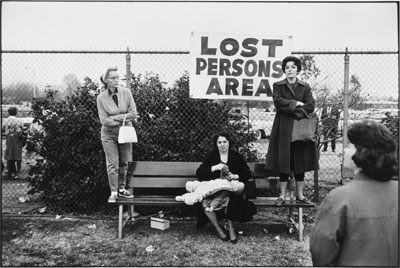Let them eat liver, or: It’s the inequality, stupid, or: A short note on poverty not existing
When I wrote my last blog on child poverty, I was planning to follow it up with a critique of ousted ACT leader Rodney Hide’s Herald column where he made the bold claim that there is no child poverty in New Zealand.
I was going to make all sorts of jolly yet incisive points about how I’m actually quite fond of Rodney (something I can’t say about more recent ACT leaders), but that he’s revealed an embarrassingly out-of-touch and simplistic understanding of poverty as a mere lack of money (“All kids are poor. Children typically don’t own much beyond a few toys”, “Poverty can’t be the cause … Liver … costs 70c a serve”).
I was going to point out that not everyone has grown up in the Protestant-work-ethic-Northern-European-stockpiling-rationalising-individualising tradition that he and I have, but that the economic system that’s been imposed here is set up to favour people with these values and shaft everyone (and everything) else.
I was even going to say that, despite all that, I’m considering trying out his suggestion of boiling up bones and getting a stew going for my lunches. Anyway, I didn’t get around to writing this blog, and now Hide’s “let them eat liver” column is old news.
Still, I think it’s worthwhile to address the most important point – the idea that poverty in New Zealand is ‘only’ ‘relative’ poverty and therefore isn’t ‘real’ poverty. Hide points to one common measure of poverty: living on less than 60% of the median wage. In Hide’s mind, all child poverty statistics can be summarily ignored, because this measure doesn’t measure what (supposedly) really matters: how much money the country has overall.
I suppose this poo-pooing of statistics is what enables Hide to state with a straight face that it’s the welfare state’s fault that kids go hungry, despite the fact that the child poverty figures began to skyrocket precisely when his friend Roger Douglas began to roll back the welfare state in the 1980s.
But this idea isn’t just touted by extremists living in a libertarian fantasy world; deputy prime minister Bill English used this very notion as an excuse to dismiss the Child Poverty Expert Advisory Group’s recommendation to set child poverty reduction targets, claiming that “such a relative poverty measure made no sense as it did not show how rich or poor people were in absolute terms”.
But hold on a second. Even if we go along with Hide and English and ignore the Advisory Group’s other poverty measures such as material deprivation or access to GDP growth, there’s something pretty fishy about such an easy dismissal of relative poverty, a.k.a. inequality.
This ignores a whole host of research showing that ‘relative’ inequality absolutely does matter. The book The Spirit Level compiles some of this research to show that unequal societies with high ‘relative poverty’ like New Zealand have significantly worse statistics for life expectancy, literacy and numeracy, infant mortality, homicide, imprisonment, teenage births, obesity, mental illness and social mobility than more equal societies – across the whole society, not just for the ‘relatively’ poor. Even though inequality or relative poverty is relative, it causes real, solid, objective, material, absolute damage.
The truth is that we’re relational beings, so it shouldn’t be surprising that how we’re doing relative to each other affects us – but neo-liberals indoctrinated into the “no such thing as society” philosophy seem to forget this.
Hide and English assume that what really matters is the ‘absolute’ matter of how much money people have. But since when was money ‘absolute’? Money only has meaning insofar as we give it meaning to represent the value of goods and services, and to say that this person can access this much goods and services, while that person can only access that much. In other words, it’s only meaningful as a relative measure; relative to real stuff and real power in the real world, and relative to how much stuff and power others have.
So, when Rodney Hide licks his lips about a “windfall that doubled all incomes” but “wouldn’t budge the child “poverty” figure”, that’s exactly the point. Doubling all incomes wouldn’t change what those incomes are relative to; it wouldn’t create any more resources. Inflation would soon ensure that each dollar was only worth half as much, so nothing would have changed at all. Poverty and affluence would be exactly the same as before.
Of course, if this ‘windfall’ was localised in New Zealand, it would give us relatively more access to resources than other countries; and that’s what National mouthpiece David Farrar, who endorsed Hide’s column, says we should be aiming for: “In these times of huge global economic uncertainty, the focus needs to be on economic growth, not [equality, which Farrar conflates with] increasing tax and welfare.”
But The Spirit Level shows that internal economic equality is far more important than economic growth for improving conditions in developed societies. Perhaps it’s because we care more about how we’re doing relative to people around us than about being even more relatively rich on a global scale than we already are.
So the fatal flaw of this spurious neo-liberal argument is that it absolutises the relative; money, while relativising the absolute; inequality.
Bill English and his government are repeating this error with devastating consequences by calling the real suffering of real children ‘merely relative’ while treating economic growth as the absolute to which all else must be sacrificed (and it isn’t even working).

11 comments